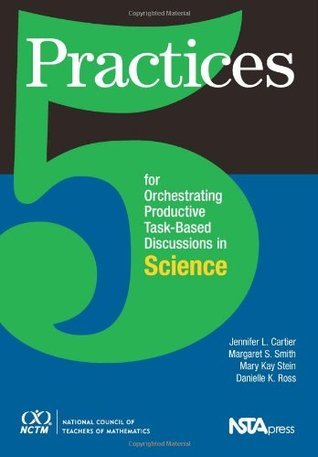This is a book I was longing for without knowing it in my science teaching methods course. As a new teacher, your decision-making faculties are constantly overwhelmed, especially when you dedicate yourself to a teaching approach that centers students' ideas, meaning-making, and talk. A lot of us end up falling back on either more of our own talk (bad) or leaving the conversation to students entirely without any support (also bad). This is a wonderful middle path that makes sure discussions are purposeful while also responsive to students' ideas, and ensures that students are the ones engaging in the real talking, thinking, and thus learning. I think will be really helpful for me in the next few years as I try to get better at this "skillful improvisation."
"We think of the Five Practices model as skillful improvisation. The practices that we have identified are meant to make student-centered instruction more manageable by moderating the degree of improvisation required by the teacher during a discussion. ... The five practices were designed to help teachers use students' responses to advance the scientific understanding of the class as a whole during task-based discussions. They provide teachers with some control over what is likely to happen in the discussion as well as more time to make instructional decisions by shifting some of the decision making to the planning phase of the lesson." (p. 28)

